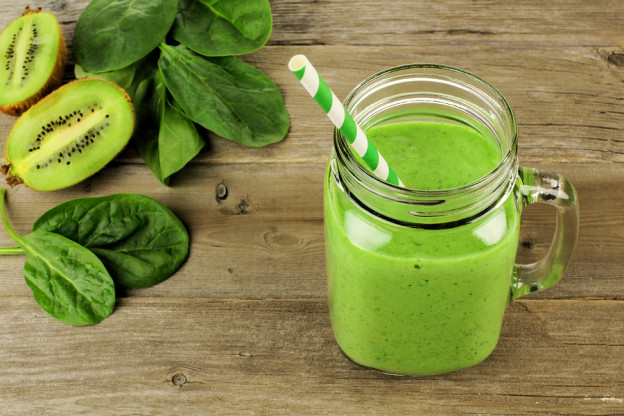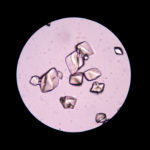By David Blyweiss, M.D., Advanced Natural Wellness
August 12, 2019
It’s not true that “an apple a day keeps the doctor away.” I’m a doctor, so I should know…
It’s actually two apples!
Jokes aside, I love fresh fruits and vegetables. They’re loaded with vitamins, minerals and antioxidants that are good for my health… and yours.
All of these nutrients work together to slash your risk of cancer, heart disease, Alzheimer’s and other age-related health concerns.
But when we’re talking about eating fruits and vegetables, I wish people would stop trying to juice their fruits and veggies… and remember the importance of chewing them instead.
You know, it’s funny with juicing… on the surface, juicing sounds like a wholesome way to get high doses of the nutrients found in our natural food supply.
Open your arteries, improve blood flow for a new health miracle...
Did you know your circulatory system has over 60,000 miles of arteries, veins and other blood vessels, if stretched end to end?
But as you age, your blood vessels undergo changes, which may cause them to stiffen, thicken and get clogged.
GOOD NEWS! Doctors have now identified a “Miracle Molecule” inside your arteries that helps OPEN your arteries and IMPROVE blood flow.
It’s what Dr. Valentin Fuster calls it, "One of the most important discoveries in the history of cardiovascular medicine."To you, that means...
- Healthy blood pressure
- Sharper mind and memory
- Skyrocketing energy and muscular strength
- Increased pleasure and passion in the bedroom
- Improved circulation to every cell and organ in your body
Go here to discover a new natural way to significantly boost the levels of this miracle molecule in YOUR body NOW!
But what you’re really doing is giving yourself future insulin resistance and possibly early dementia. That’s because foods that age your brain are foods that raise your sugar and your insulin levels too quickly.
Think about it.
Juice four or five oranges, gulp it down, and you just ate four healthy pieces of fruit, right? But do you normally sit down and eat four or more oranges at a time?
Probably not. But, depending on the size of the orange, that’s about how many it takes to make one cup of juice.
Your warning bells should be going off here…
Your juicer will extract every drop of liquid from whatever fruit you put into it, while leaving everything else behind. You won’t get any pith, peel, seeds or other fibrous parts of the fruit that are necessary to slow down the release of sugar to your blood stream.
Here’s the problem: without fiber, the sugar in juice goes unchecked and it will trigger a huge insulin response in your body. Once this occurs, all that excess sugar will be stored in the body as fat.
That spike in insulin will also set you up for a sugar crash that will leave you feeling ravenous a short time later.
Chronically high levels of insulin set you up for diabetes. In fact, one or more servings of fruit juice a day can increase your chances of developing diabetes by about 18%.
Are You Suffering From...
- Love handles and a pot belly
- Romance that isn't what it used to
- Forgetfulness and inattention
- Low (or no) strength and endurance
- A sex drive that's shifted into neutral...or worse
If so...you may have Mature Male Burnout. Click here to discover more about this unique condition and what you can do about it.
On the other hand, eating three servings of whole fruit each day can slash your risk of diabetes by about the same.
What if you juice with veggies?
Well, the amount of sugar released won’t be as high. But you’ll still be missing out on all that beneficial fiber. So, you’re going to find yourself starving again much sooner than if you ate the whole food.
At the same time, lack of fiber can have a negative effect on your gut bacteria, make you constipated and reduce your immune health.
If you’re trying to use juicing as a replacement for meals, you won’t only be missing out on fiber. You’ll also miss out on healthy proteins and fats your body needs for energy, brain power, muscle strength and other body functions.
Smoothie Making 101
So, if you want a quick way to get more nutrients in your diet, you’re much better off going with a smoothie. And you don’t need some high-priced juicer to do it. Your good, old-fashioned blender is perfect for the job.
My favorite kind of smoothie starts with a nut milk and a decent amount of spinach or kale. Then, I add in some blueberries or a banana.
I might put in one or two pitted dates for some sweetness and then a tablespoon of chia seeds or hemp seed to make it really fibrous and rich.
Finally, I put in a tablespoon of organic almond or cashew butter. Throw in some plant-based protein powder if you’d like. (I’m getting hungry while I write this.)
This type of smoothie is green, it tastes good, and I’ve kept in all my fibrous parts. Unlike with juicing, the sugars in the fruits and vegetables don’t get absorbed in five minutes.
They don’t boost my glucose and insulin levels too quickly, putting me at greater risk for Type 2 diabetes. Instead, the high fiber content lets sugars slowly get absorbed over time.
You can use whatever smoothie recipe works best for you. Just make sure not to overload it with fruits. Use mainly greens and add an apple, pear, kiwi or a few berries to give it a little flavor. (Make sure you don’t peel or core anything, or you’ll lose much of the benefits.)
And it’s okay if you need to chew your smoothie a little bit. It doesn’t need to be perfectly liquefied.
Listen, you have to chew your food at least 30 times to get the salivary digestive enzymes in your mouth to start working. Digestion starts in your mouth. So, if you chew enough before you swallow, you’ll decrease digestive issues.
A smoothie is an easy way to get a protein fix right along with healthy fat, plenty of phytonutrients and a hefty dose of much-needed fiber.
In the meantime, don’t stop eating whole fruits and vegetables. Fresh, organic produce should always be your first choice. A smoothie comes in second as a way to bump up your intake when needed.
SOURCES:
Liu RH. Health benefits of fruit and vegetables are from additive and synergistic combinations of phytochemicals. Am J Clin Nutr. 2003 Sep;78(3 Suppl):517S-520S.
Bazzano LA, et al. Intake of fruit, vegetables, and fruit juices and risk of diabetes in women. Diabetes Care. 2008 Jul;31(7):1311-7.







